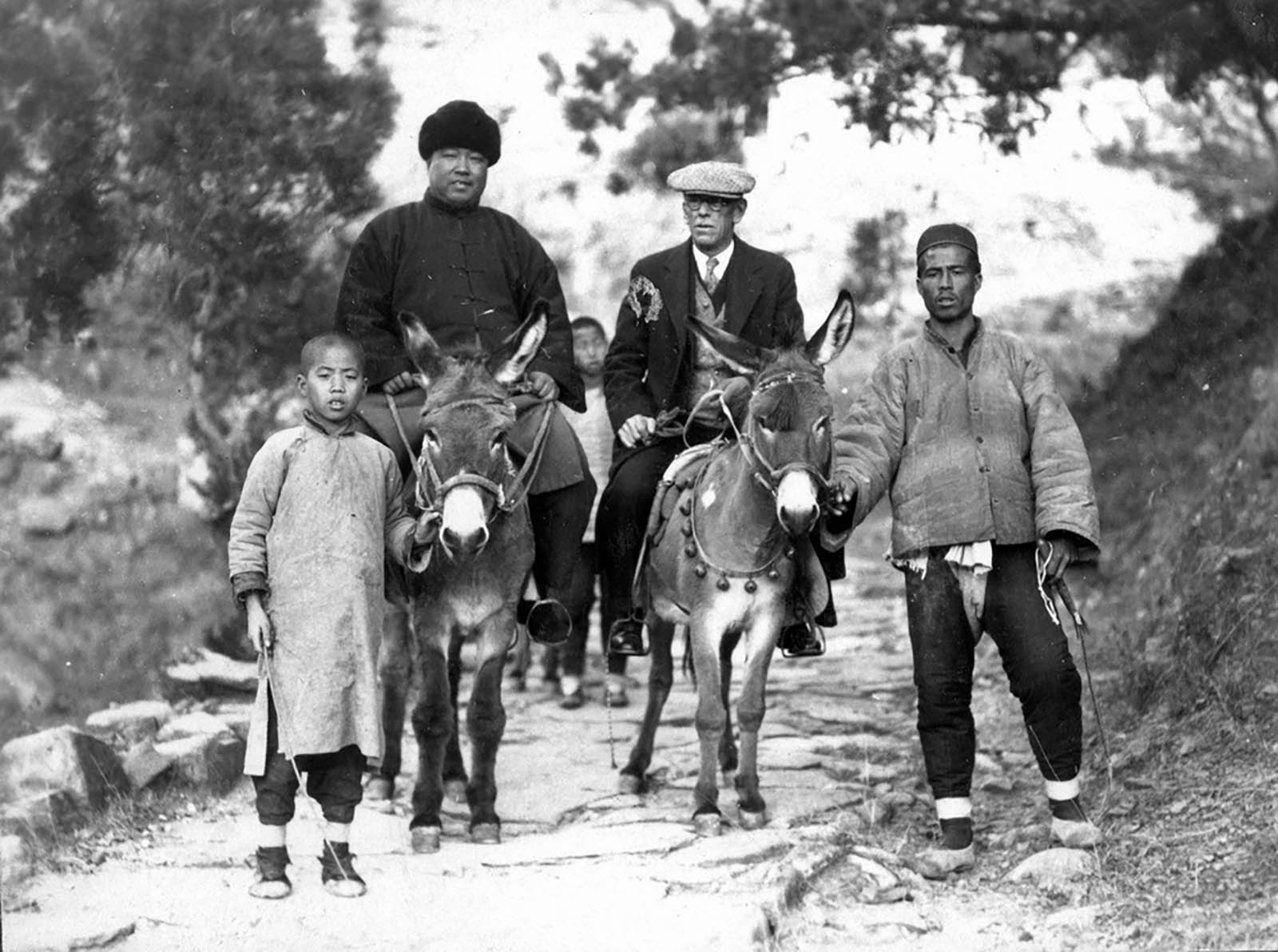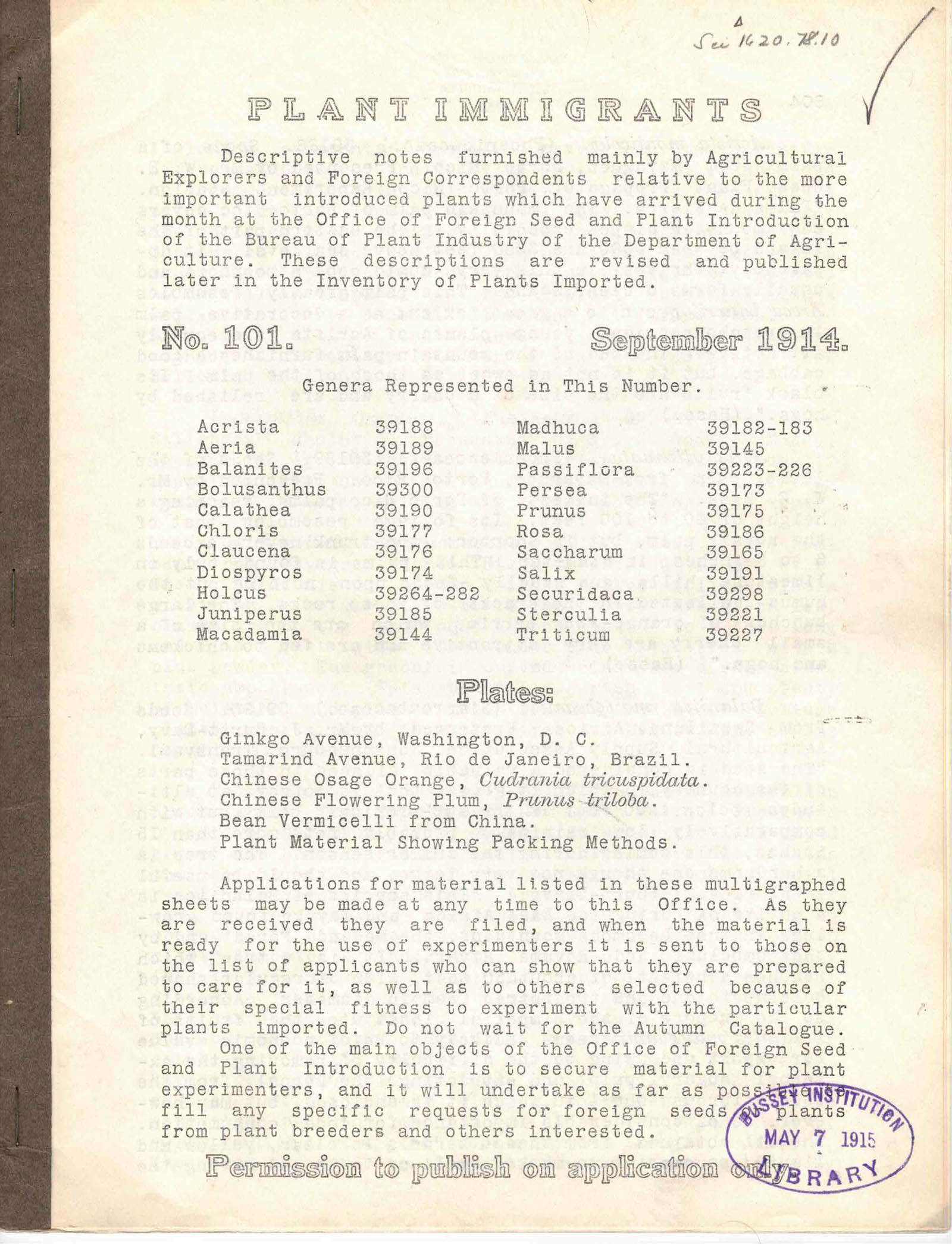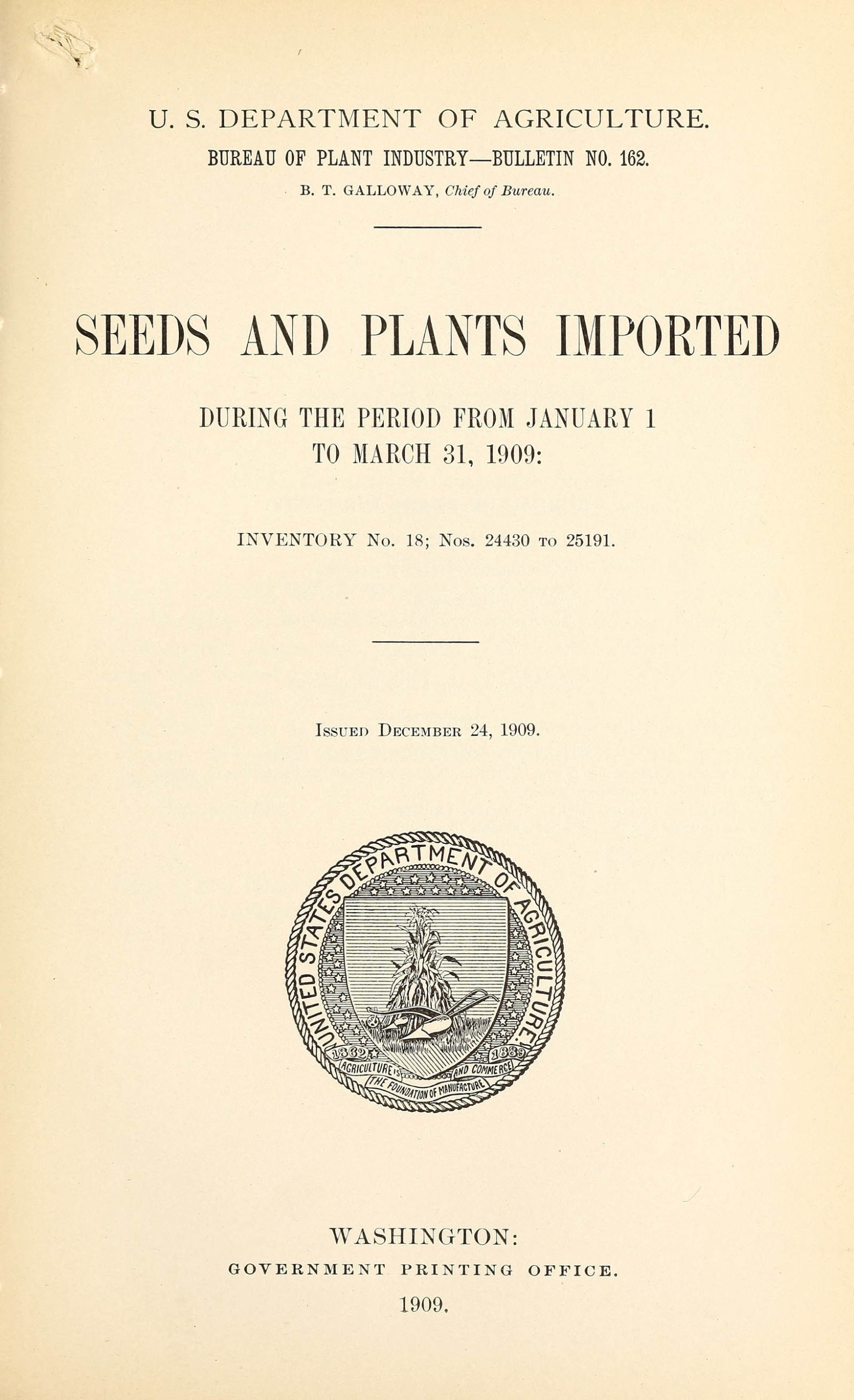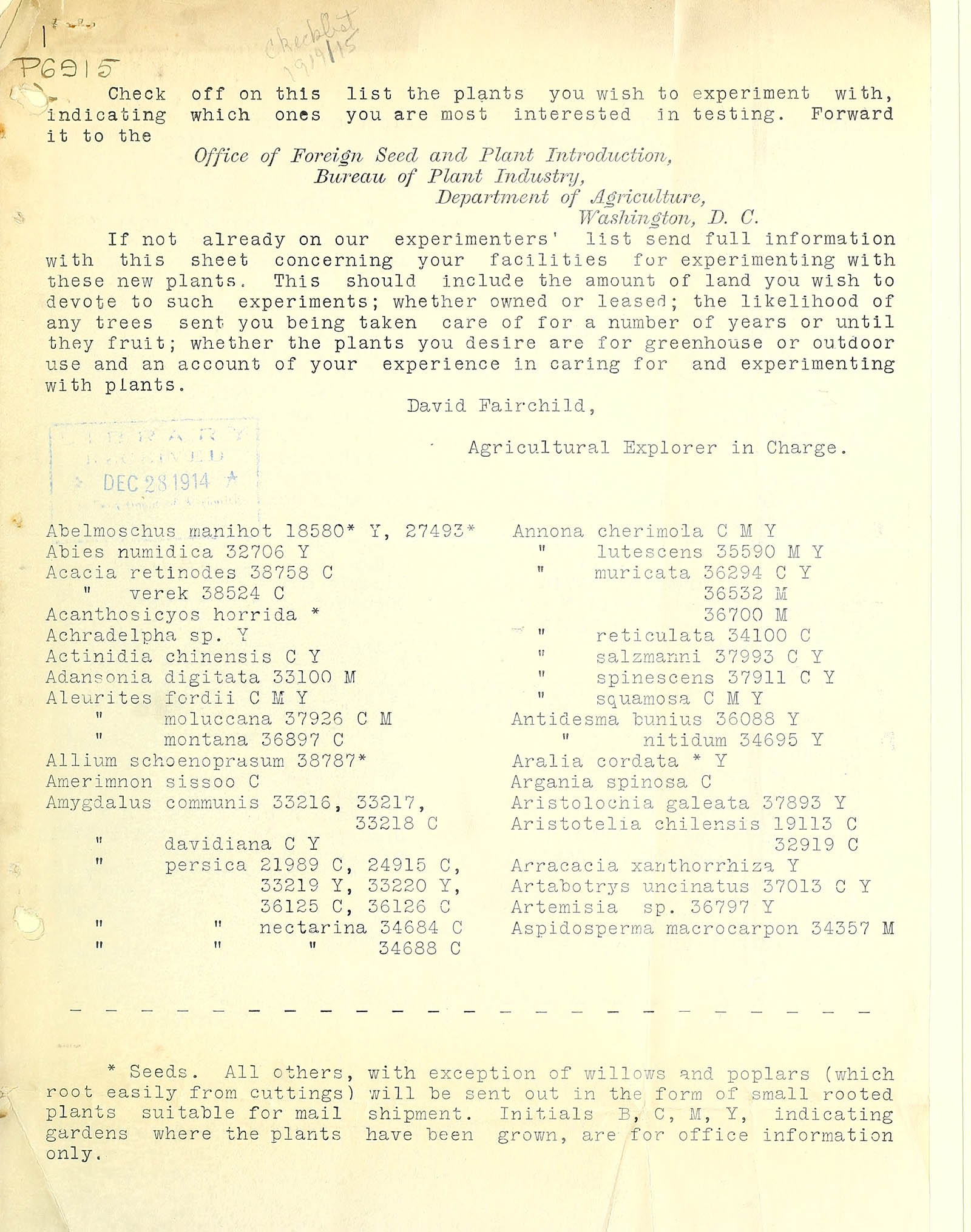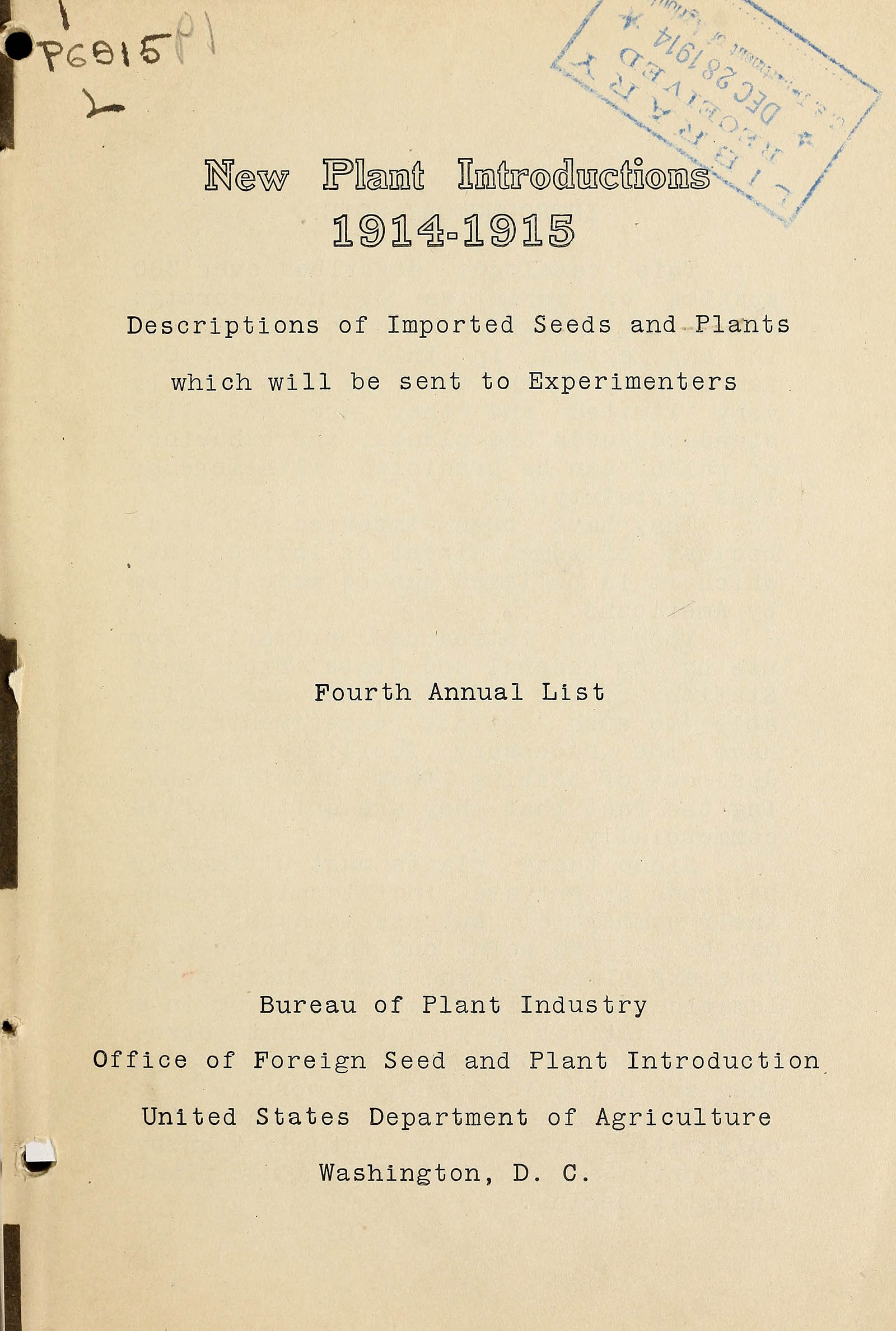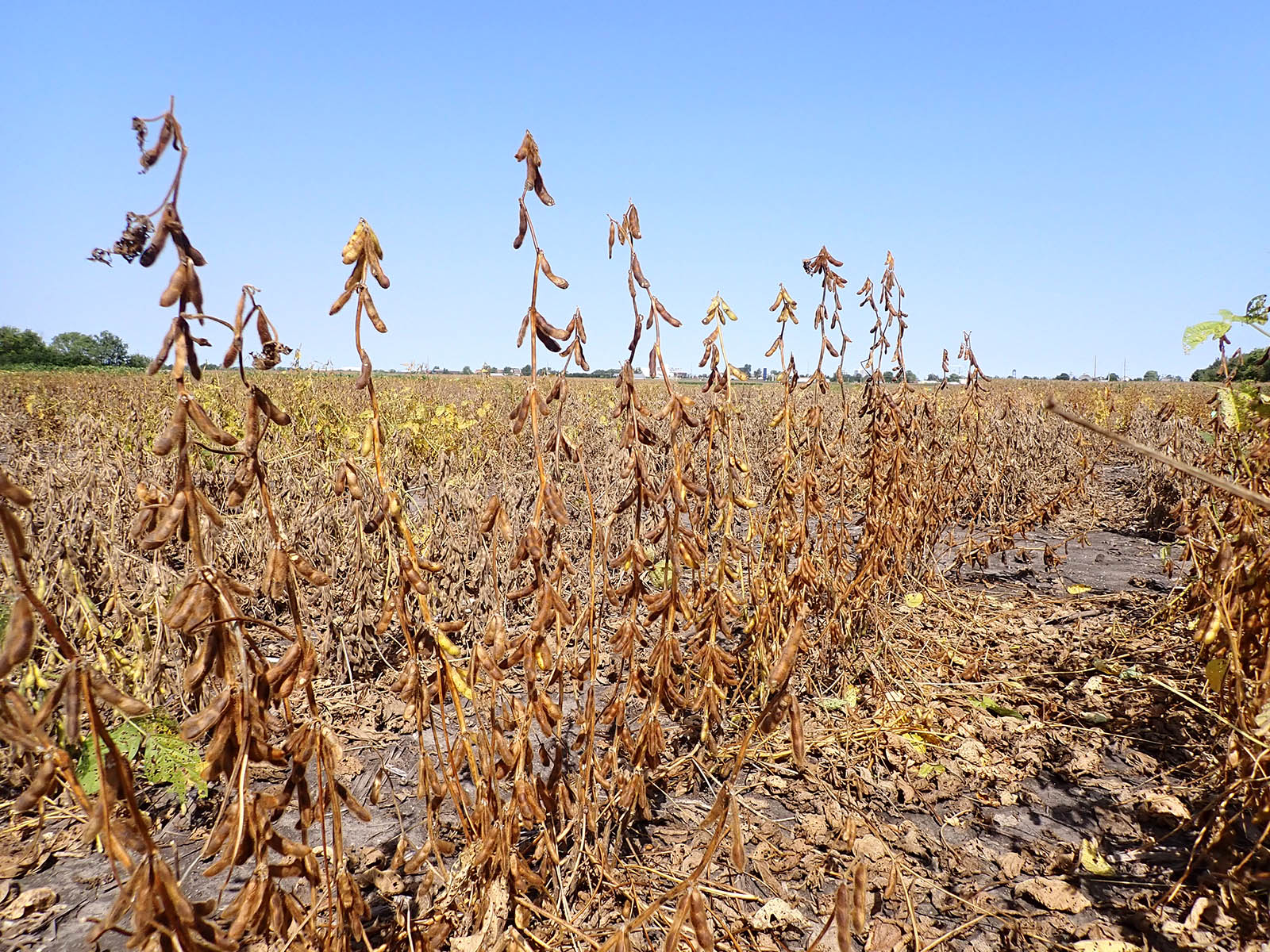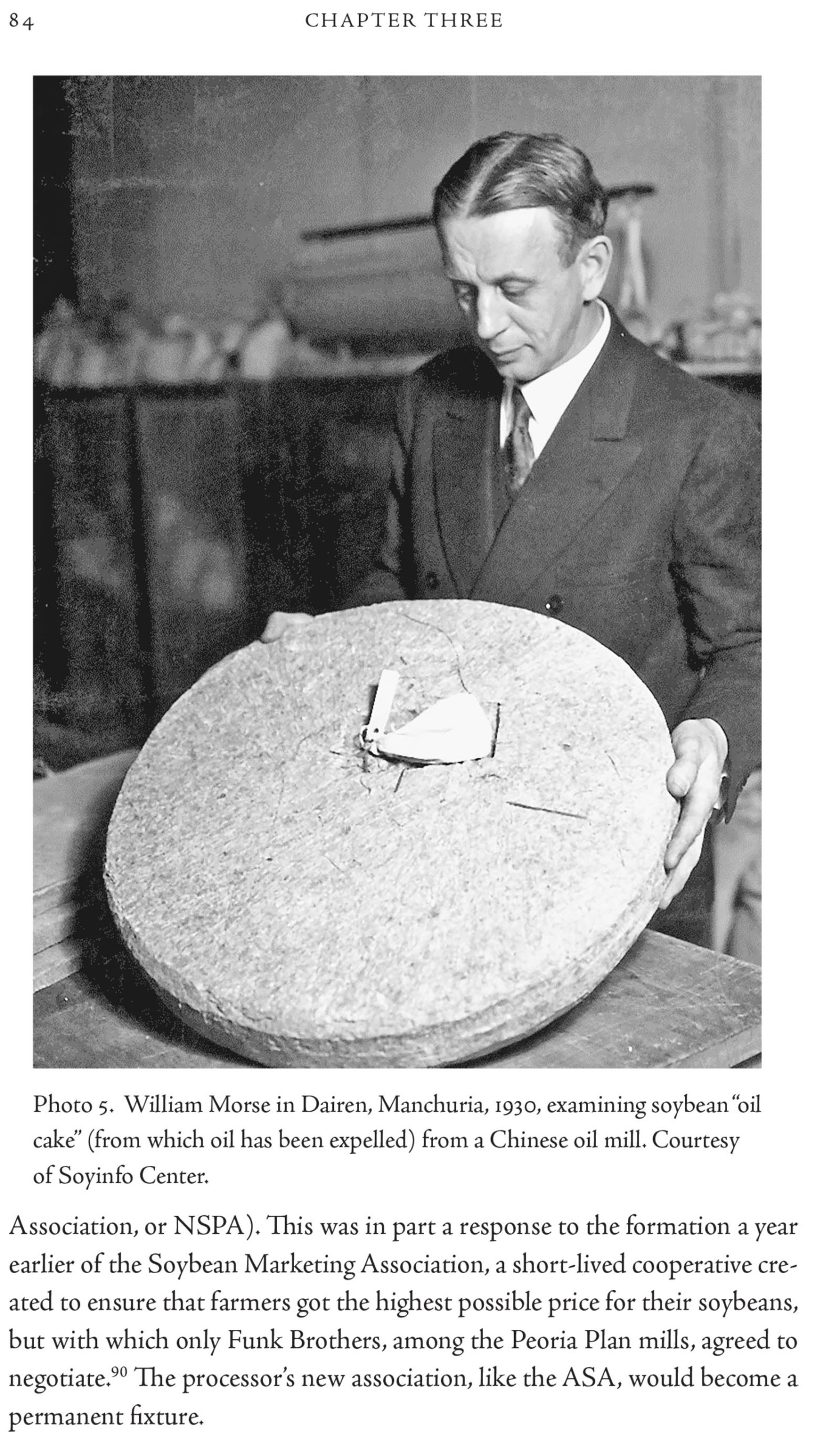2022 Design Studies Thesis Prize: Anny Li’s “The World Was Their Garden: Plant introductions at the US Department of Agriculture, 1898–1984”
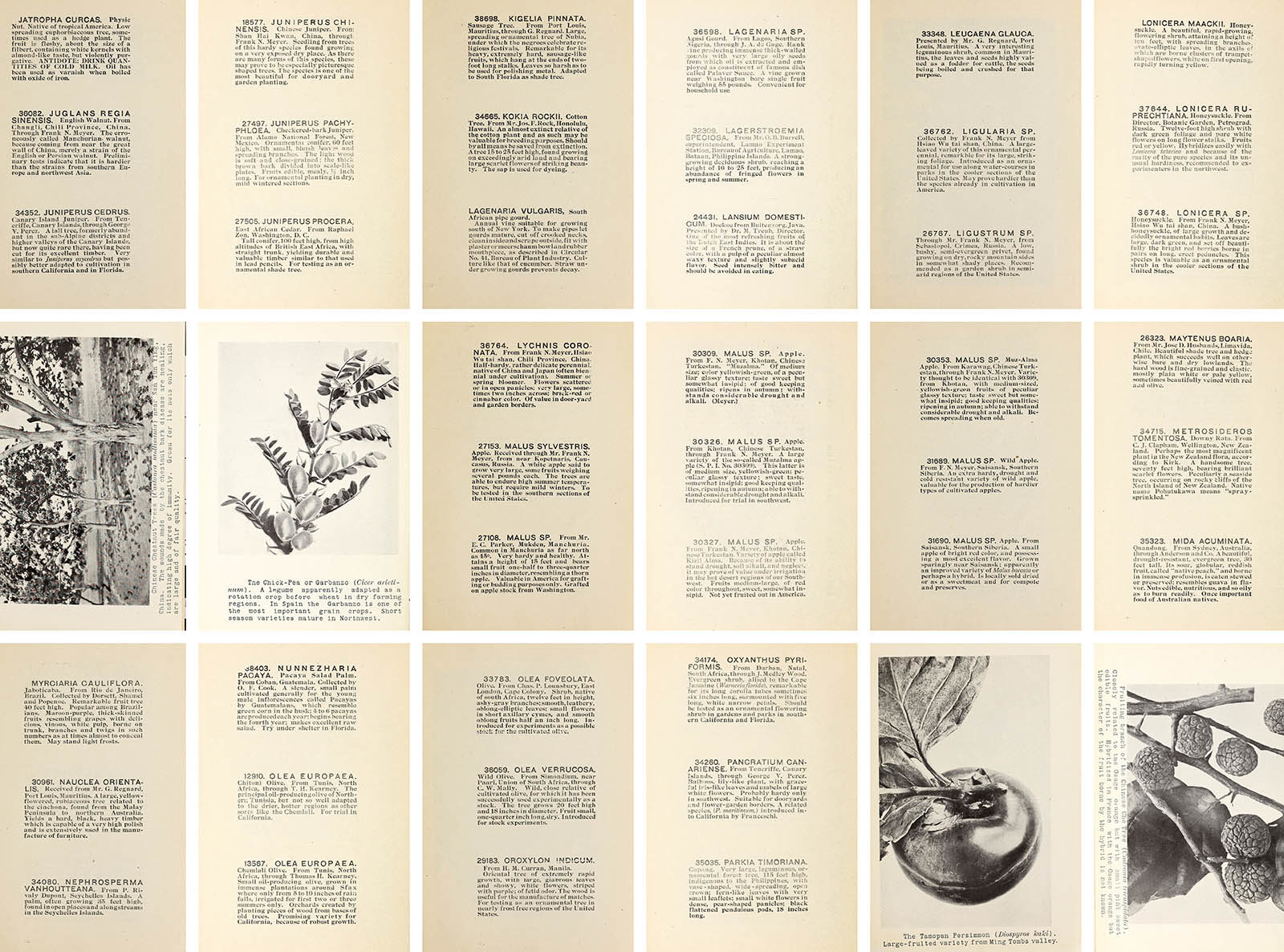
Pages from US Office of Foreign Seed and Plant Introduction's, New Plant Introductions 1914–1915 (Washington: Government Printing Office, 1915), 73-90, featuring electrotyped descriptions of imported plants sent to SPI cooperators, each with its assigned Plant Introduction (PI) Number.
by Anny Li (MDes ’22) — Recipient of the Design Studies Thesis Prize.
In 1898, the US Department of Agriculture established the Office of Foreign Seed and Plant Introduction (SPI) to systematically collect and introduce plants of economic interest to US soil. Employing a group of trained “agricultural explorers” to collect plants from all over the world, the office is credited with introducing a mouthwatering array of new fruit industries—mango, avocado, date palm, and citrus, to name just a few—as well as securing billion-dollar staple crops against diseases, pests, and drought with infusions of genetic material for breeding improved varieties. Yet traditional accounts of federal plant introduction often leave out what it took to integrate these collections into the agricultural landscape: systematic experimentation that inhered in monumental record-keeping practices, imperial relationships, and the ravenous need for industrial agriculture to reproduce itself at scale—thus motivating continual investment in seeds as “experimental capital.”
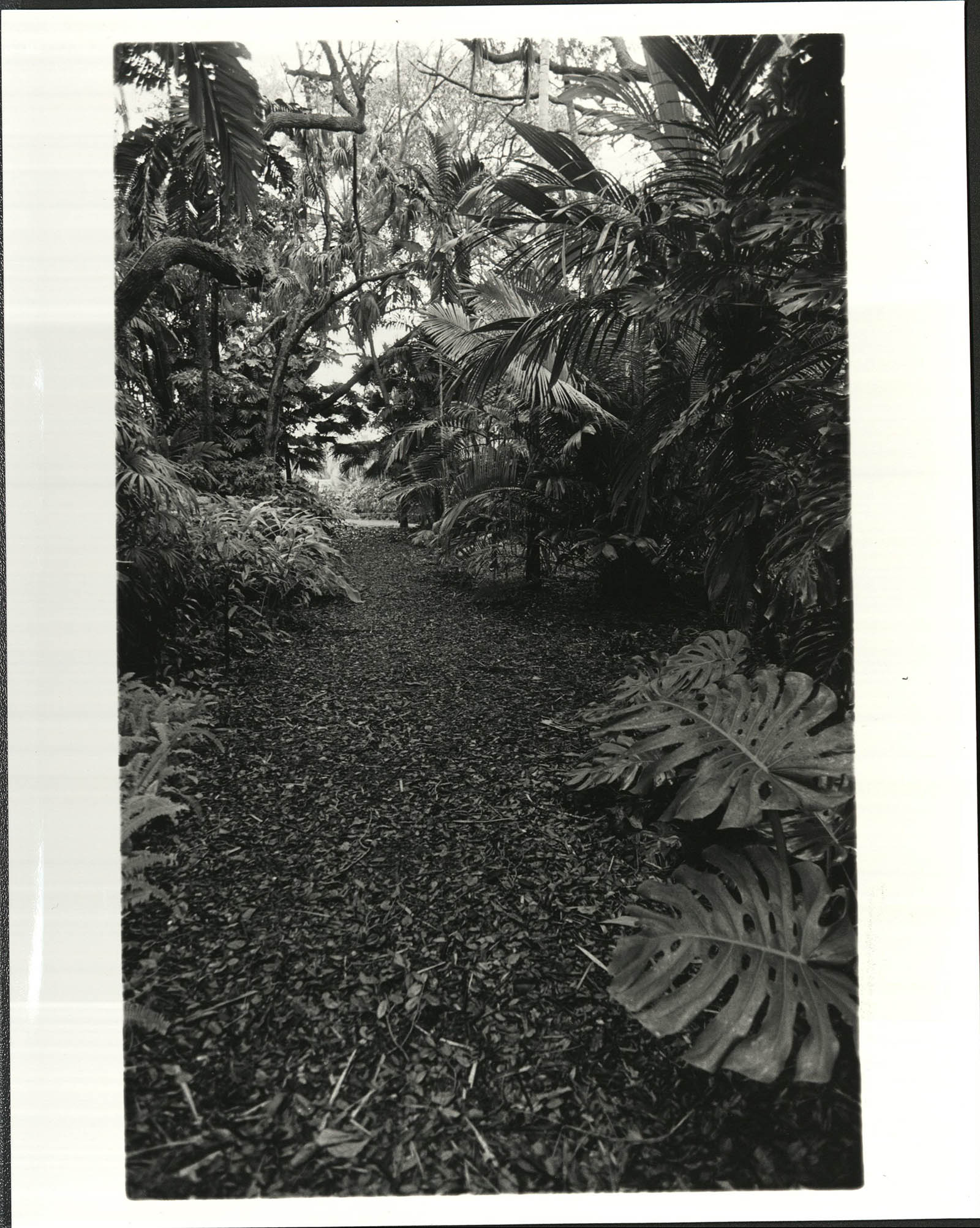
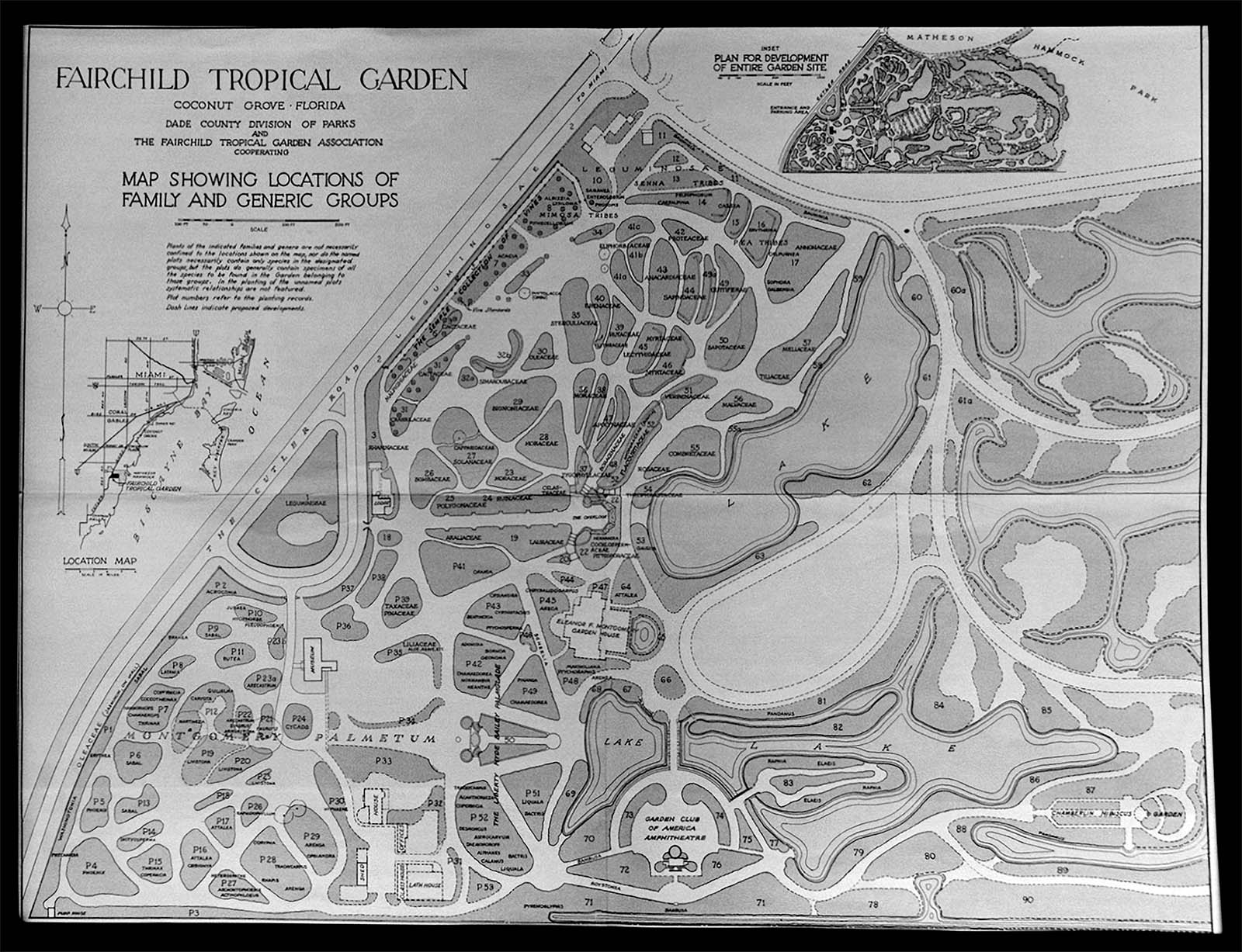
This thesis thus resituates the SPI’s administrators and explorers as actors in the US imperial “environmental management state” emergent at the turn of the century. I examine the archival logics of the state infrastructure built to accumulate and manage the living substrate of industrialized monocultures. First, I attend to the SPI’s exhaustive record-keeping system and media artifacts—bulletins, inventories, photographs and films—as constitutive of its scientific authority and reputation, but also as productive of a modern national identity. Then, I situate federal plant introduction work in the specific geography of southern Florida, mapping out its impact on the landscape through the creation of the Fairchild Tropical Garden. Finally, with soy being one of the most significant crops introduced to the US in the 20th century, I follow the 1929–31 Dorsett-Morse soybean collection expedition to East Asia to explore how living plant germplasm endures across changing institutions and landscapes. In following these living and non-living material traces, this thesis elaborates how the SPI serves as a conceptual and material precursor to contemporary genetic resources preservation and environmental politics.
